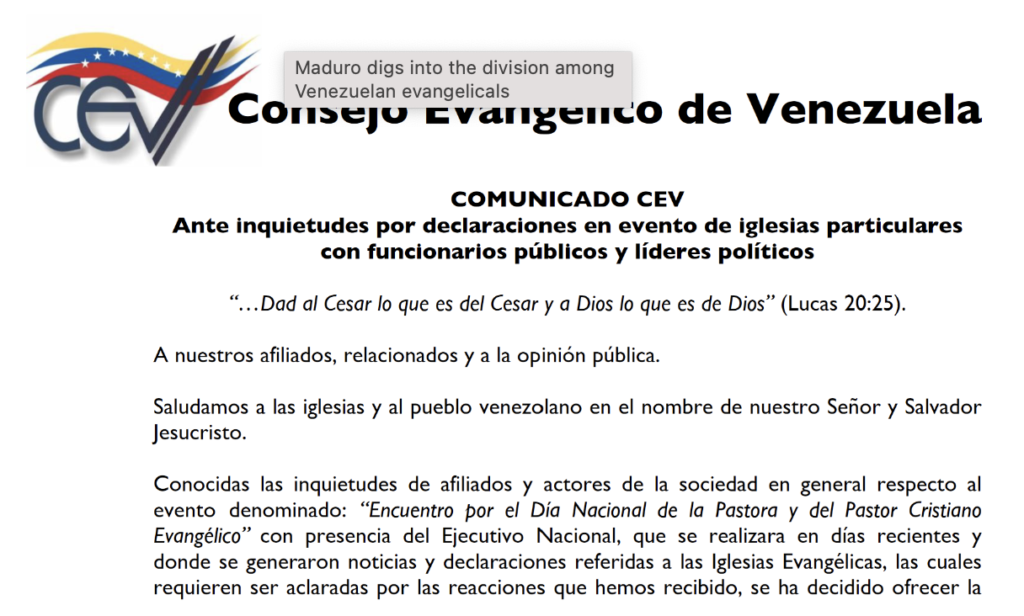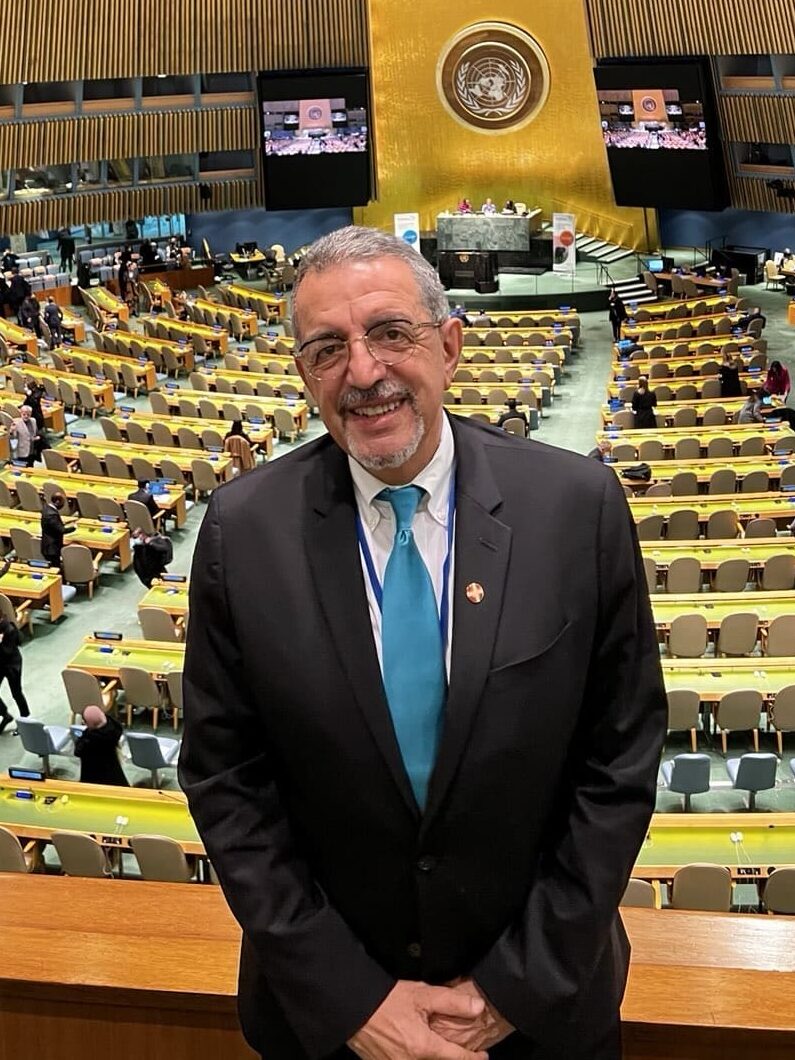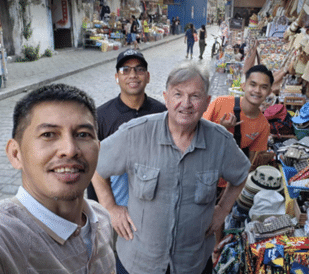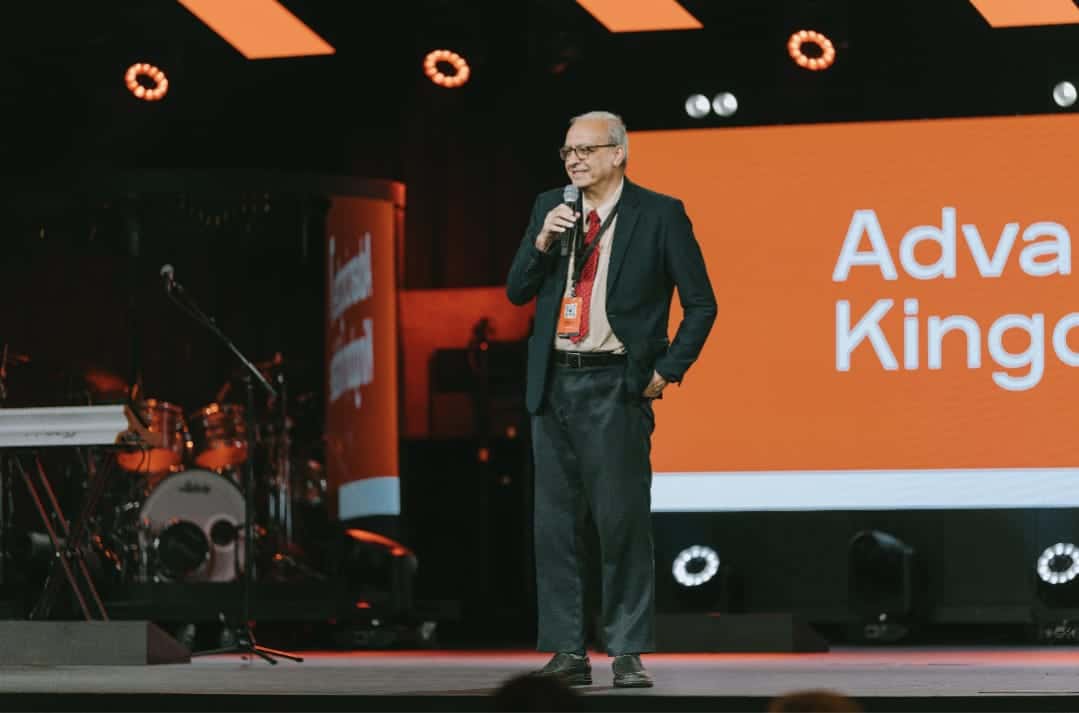The President of the Venezuelan Republic, Nicolás Maduro, announced on 19 January a new “My Church Well Equipped” plan to renovate buildings of evangelical churches.
This was announced in a meeting between Maduro and a group of evangelical pastors who are members of the Christian Evangelical Movement of Venezuela (MOCEV) during the official Day of Evangelical Christian Pastors, established in 2019 by the government.
The name of the evangelical group attending the gathering with the president could indicate that it represents all Venezuelan evangelicals. But this is not the case, pastors in the country say, since broad evangelical sectors in Venezuela are distancing themselves from or are clearly against the Nicolás Maduro’s government.
Broadcasting licenses and money for social projects
Maduro told the pastors at the event that they would be granted spaces on Venezuelan television and radio.
Other initiatives presented by the head of the Venezuelan regime are a new “Social Church” project that should serve as a means for the most needy through feeding programmes in evangelical churches.
At one point of the meeting, several evangelical pastors laid hands on President Maduro to bless him.
Evangelical Council says no
Among those who did not attend the event with President Maduro were the members of the Evangelical Council of Venezuela (CEV), member organisation of the World Evangelical Alliance.
To avoid confusions, they issued a statement to clarify that “the CEV has not made and will not make any requests for funds managed by governmental bodies to cover expenses for the construction of temples, the organisation of religious events, or for the acquisition of church supplies, since this is the responsibility of the church members and their donors, and we assume that this should apply to any other religious institution”.
Maduro digs into the division among Venezuelan evangelicals
Statement of the Evangelical Council of Venezuela on 21 January 2023.

“We are opposed to worship activities being put at the service of the visibility of public officials or representatives”, the added, especially in “pre-election circumstances or any other that undermine the good faith of the audience in any way”.
The CEV sees a “strong political-partisan component in the announcements made on Thursday 19”. “We are consistent with the principle of separation of church and state, and in this sense, we believe that public funds should not be available for the advancement of particular religious or ideological creeds”.
“Politicisation of faith will never be a symbol of strength”
“Evangelicals do not have a supreme leader or official spokesperson, so that no one can speak for all evangelicals”, the CEV said, and “much less those who come to be imposed by outside bodies on the evangelical communities themselves”.
“A politicised faith is disloyal” as well as “foolish and disastrous for the church”, the statement of the CEV concludes. “The politicisation of faith will never be a symbol of strength but of weakness. The evangelical soul is not for sale, it has already been bought with an infinite price”.
Maduro’s previous promises to evangelicals
This is not the first time that Nicolás Maduro has offered benefits to specific evangelical church groups at election time. In 2017, a year before the elections, the Movimiento Cristiano Evangélico por Venezuela was created, with which the president held public meetings to establish agreements. It is this same entity that met again with Maduro on 19 January 2023.
In 2017, the guarantee was made that he would expand dining halls, give bonuses to pastors through the Patria system, and even create an evangelical university. Little of this has materialised.
As for the presence of evangelical Christians in the media, last year alone the government closed down more than a dozen Christian radio stations, many of which had their papers in order.





Stay Connected